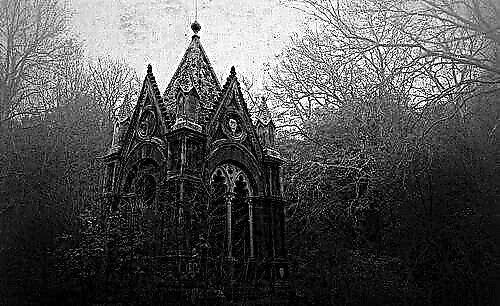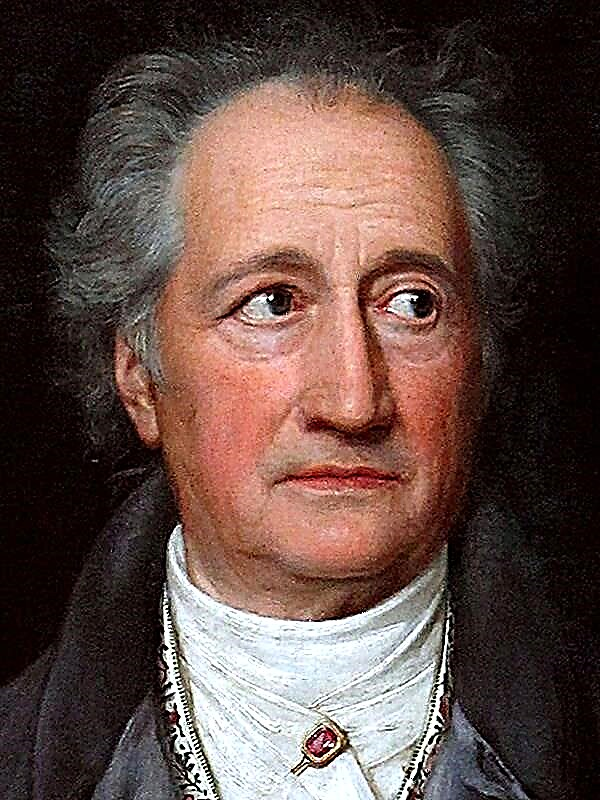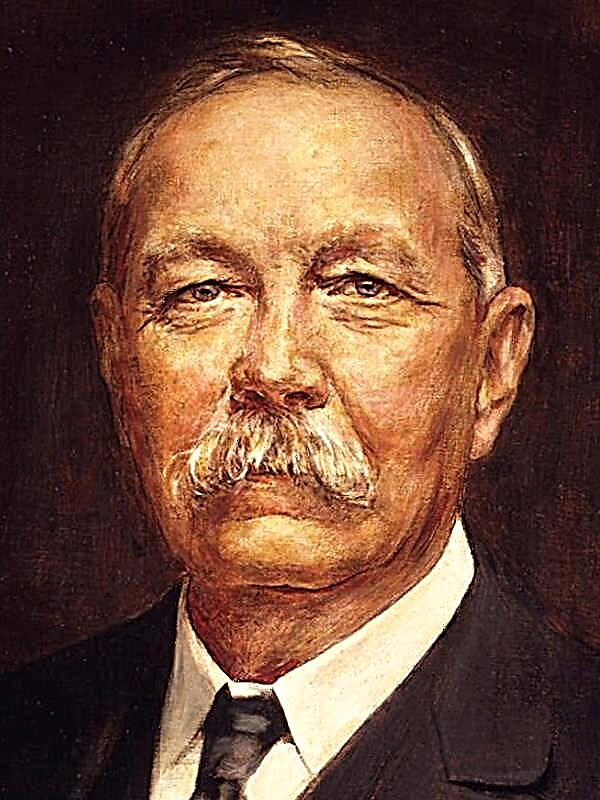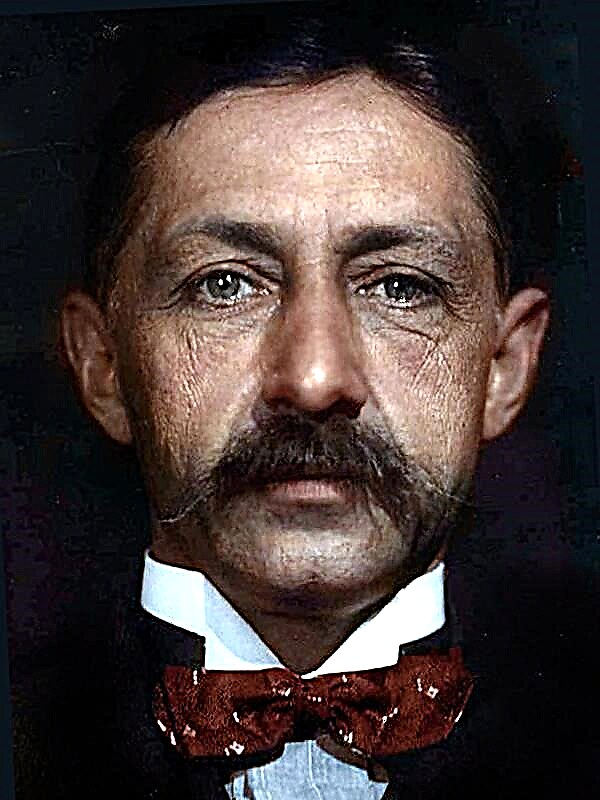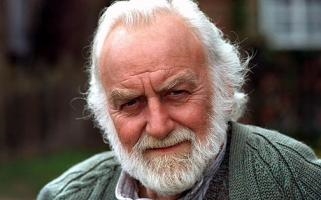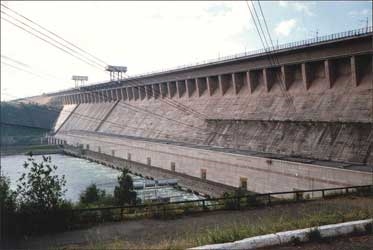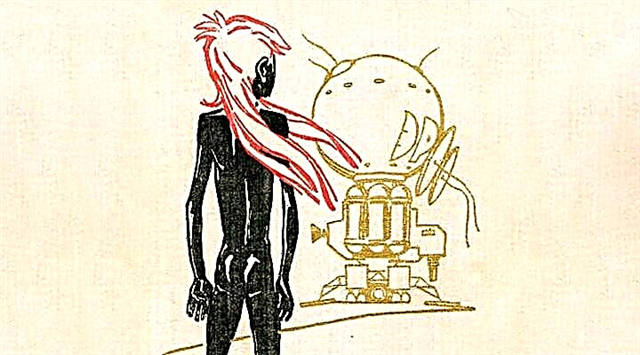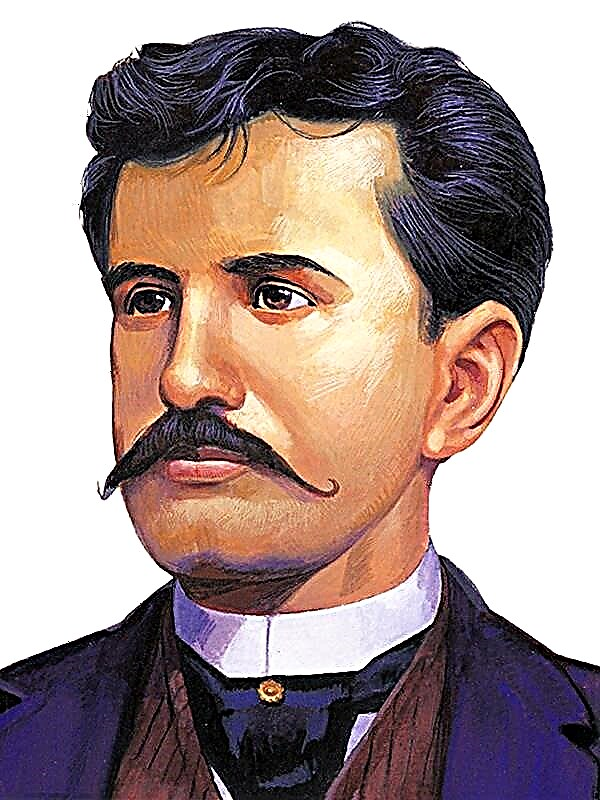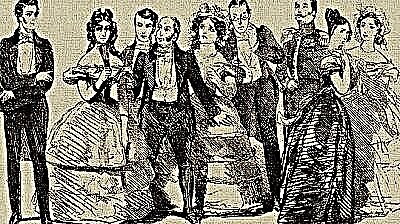Under the scorching sun of July 1942, the retreating parts of the Red Army walked along the Donetsk steppe with their convoys, artillery, tanks, orphanages and herds, livestock, trucks, refugees ... But they didn’t have time to cross Donetsk: they left the river parts of the German army. And all this mass of people gushed back. Among them were Vanya Zemnukhov, Ulya Gromova, Oleg Koshevoi, Zhora Harutyunyants.
But not everyone left Krasnodon. The staff of the hospital, in which more than one hundred non-walking wounded remained, placed the soldiers in the apartments of local residents. Filipp Petrovich Lyutikov, left by the secretary of the underground district committee, and his underground comrade Matvey Shulga quietly settled in safe houses. Komsomolets Serezha Tyulenin returned home from digging trenches. It so happened that he took part in the battles, he himself killed two Germans and intended to kill them in the future.
The Germans entered the city during the day, and at night the German headquarters burned down. It was set on fire by Sergey Tyulenin. Oleg Koshevoy returned from the Donets along with the director of the mine No. 1 bis Valko and on the way asked him to help contact the underground. Valko himself did not know who was left in the city, but was sure that he would find these people. The Bolshevik and Komsomolets agreed to keep in touch.
Kosheva soon met Tyulenin. The guys quickly found a common language and worked out an action plan: to look for ways to the underground and at the same time independently create a youth underground organization.
In the meantime, Lyutikov began to work with the Germans in electro-mechanical workshops to avert eyes. He came to the Osmukhins family, which he had known for a long time, to call Volodya for work. Volodya was eager to fight and recommended Lyutikov for the underground work of his comrades Tolya Orlov, Zhora Harutyunyants and Ivan Zemnukhov. But when the question of armed resistance came with Ivan Zemnukhov, he immediately began to ask for permission to bring Oleg Koshevoy into the group.
The decisive meeting took place in the "weeds under the barn" at Oleg. A few more meetings - and finally all the links of the Krasnodon underground have closed. A youth organization was formed, called the "Young Guard."
Protsenko at that time was already in the partisan detachment, which was based on the other side of the Donets. At first, the detachment acted, and acted well. Then he was surrounded. To the group, which was supposed to cover the departure of the bulk of the people, Protsenko, among others, sent Komsomolets Stakhovich. But Stakhovich got scared, escaped through Donets and went to Krasnodon. Having met Osmukhin, his schoolmate, Stakhovich informed him that he had fought in a partisan detachment and was officially sent by the headquarters to organize a partisan movement in Krasnodon.
Shulgu was instantly issued by the landlord, a former fist and a hidden enemy of Soviet power. The turnout where Valko was hiding failed accidentally, but policeman Ignat Fomin, who conducted the search, immediately recognized Valko. In addition, almost all the members of the Bolshevik party, Soviet workers, social activists, many teachers, engineers, noble miners and some of the military were arrested in the city and in the region. The Germans executed many of these people, including Valko and Shulgu, by burying them alive.
Shevtsov’s love was put forward at the disposal of the partisan headquarters for use behind enemy lines. She graduated from the military landing courses, and then the courses of radio operators. Having received a signal that she should go to Voroshilovgrad and connected with the discipline of the Young Guard, she reported on her departure to Koshevoy. No one, except Osmukhin, knew with whom of the underground underground Oleg was connected. But Lyutikov knew perfectly well for what purpose Lyubka was left in Krasnodon, with whom she was connected in Voroshilovgrad. So the "Young Guard" came to the headquarters of the partisan movement.
Outwardly bright, cheerful and sociable, Lyubka was now in full swing with the Germans, introducing herself as the daughter of a mine owner repressed by the Soviet regime, and through the Germans she was collecting various intelligence.
The Young Guards set to work. They pasted up subversive leaflets and issued Sovinformburo reports. The police officer Ignat Fomin was hanged. They freed a group of Soviet prisoners of war working on logging. They collected weapons in the area of the fighting on the Donets and stole it. Ulya Gromova was in charge of work against the recruitment and theft of young people to Germany. The labor exchange was set on fire, and along with it the lists of people whom the Germans were planning to steal to Germany were burned. On the roads of the district and beyond, there were three permanent combat groups of the Young Guard. One attacked mainly cars with German officers. This group was led by Viktor Petrov. The second group was engaged in tank cars. This group was led by the released from captivity, the lieutenant of the Soviet Army, Zhenya Moshkov. The third group - Tyulenin's group - acted everywhere.
At this time - November, December 1942 - the battle at Stalingrad ended. On the evening of December 30, the guys discovered a German car loaded with Christmas gifts for the Reich soldiers. They cleaned the car, and decided to immediately sell part of the gifts on the market: the organization needed money. On this trail, the police, who had long been looking for them, went to the underground. At first they took Moshkov, Zemnukhov and Stakhovich. Upon learning of the arrest, Lyutikov immediately ordered that all members of the headquarters and those close to those arrested leave the city. Should hide in the village or try to cross the front line. But many, including Gromov, because of their young carelessness, remained or could not find reliable refuge and were forced to return home.
The order was given while Stakhovich began to testify under torture. Arrests began. Few could leave. Stakhovich did not know through whom Koshevoi communicated with the district committee, but accidentally remembered a liaison, and as a result the Germans came to Lyutikov. In the hands of the executioners was a group of adult underground fighters led by Lyutikov and members of the Young Guard. No one admitted to belonging to the organization and did not point to his comrades. Oleg Koshevoi was taken one of the last - ran into the steppe on a gendarme post. During the search, they found a Komsomol ticket. During interrogation in the Gestapo, Oleg said that he was the leader of the Young Guard, one was responsible for all its actions, and then he was silent even under torture. The enemies were not able to find out that Lyutikov was the head of the underground Bolshevik organization, but they felt that this was the largest person they captured.
All the Young Guards were terribly beaten and tortured. Uli Gromova had a star cut out on her back. Crouching on her side, she tapped into a neighboring cell: "Fasten yourself ... All the same, ours are coming ..."
Lyutikov and Koshevoy were interrogated in Rovenky and also tortured, “but we can say that they already did not feel anything: their spirit soared infinitely high as soon as the great creative spirit of a person soars”. All the arrested underground workers were executed: they were thrown into the mine. Before they died, they sang revolutionary songs.
On February 15, Soviet tanks entered Krasnodon. Few surviving members of the Krasnodon underground took part in the funeral of the Young Guard.

